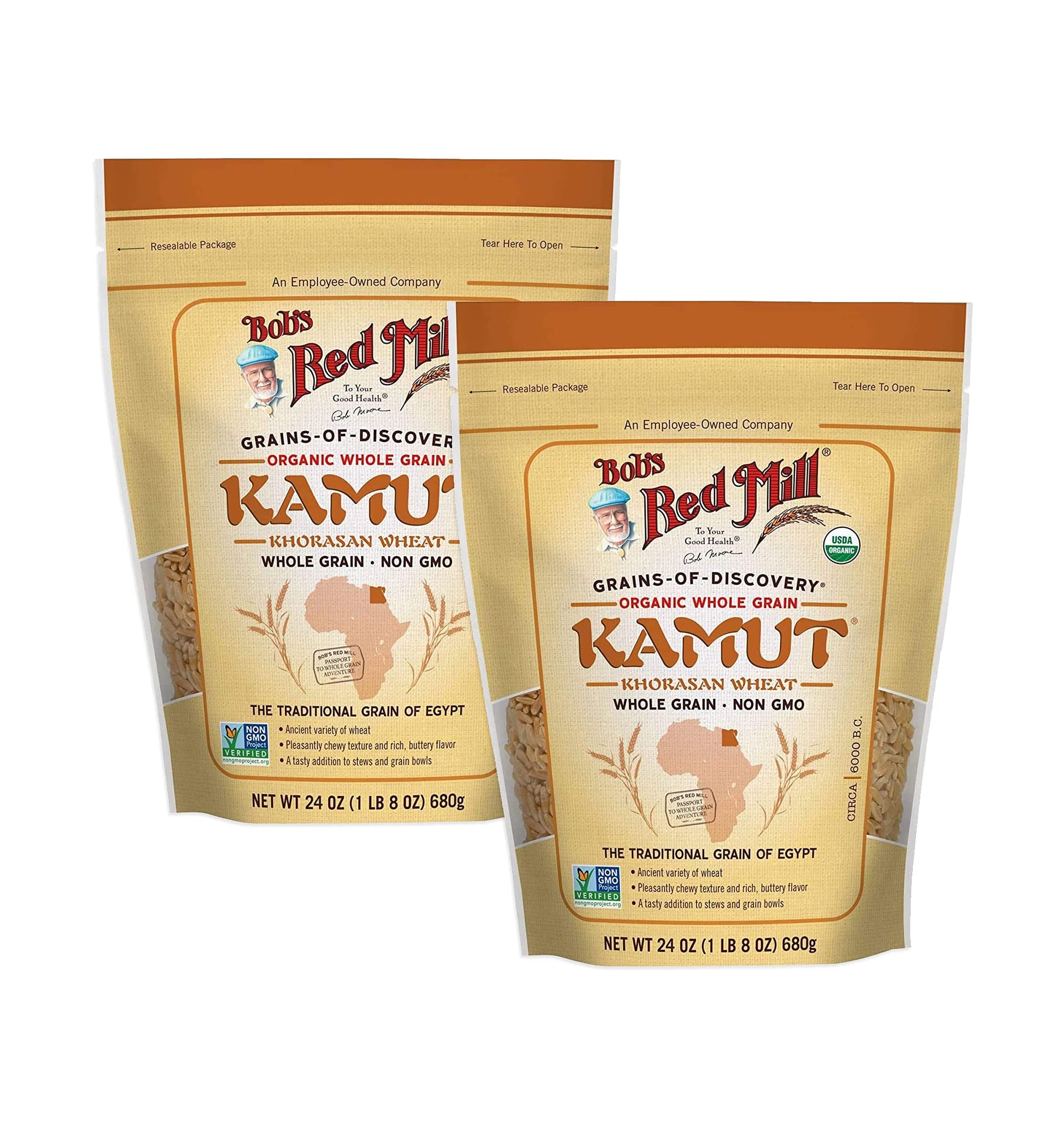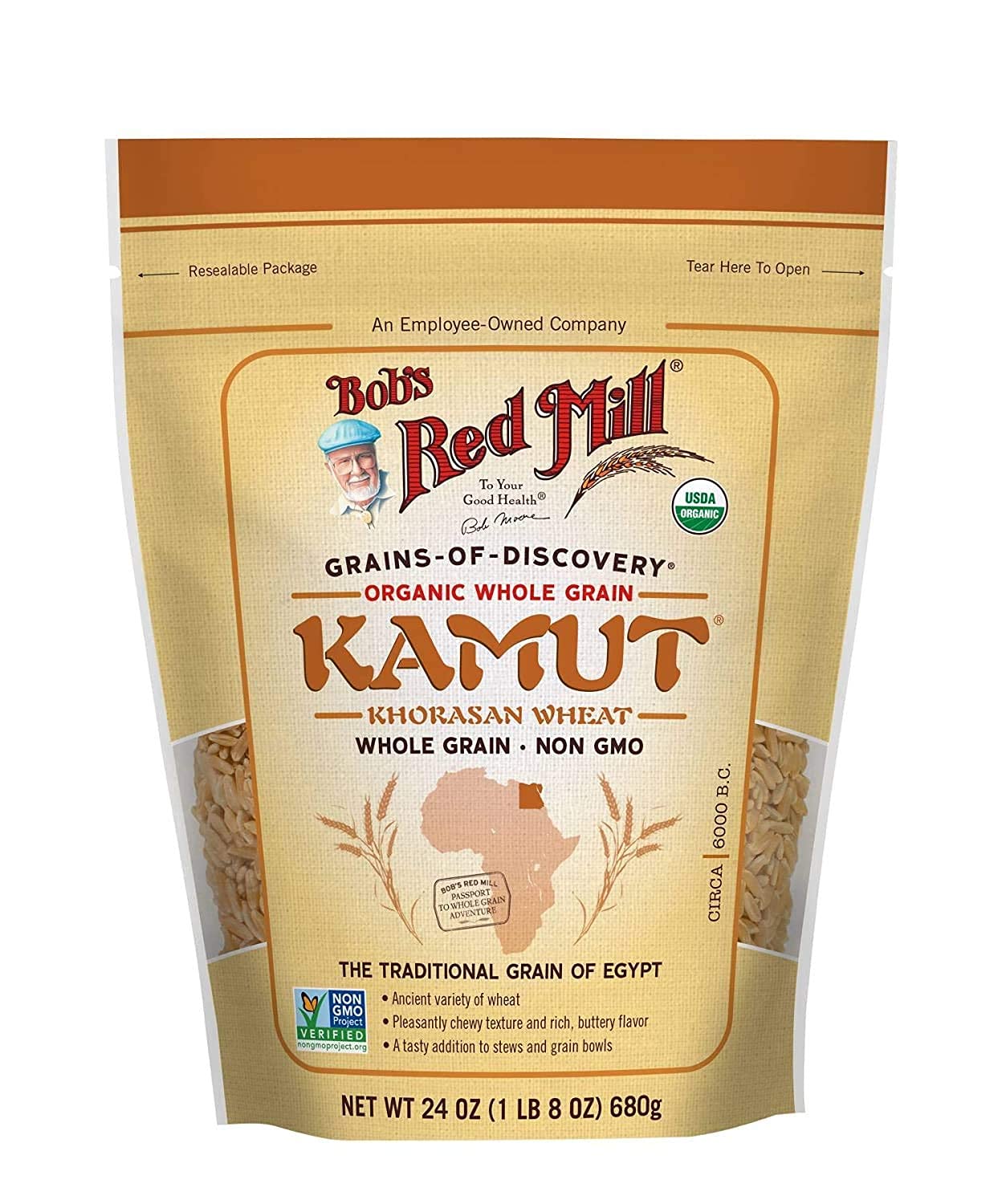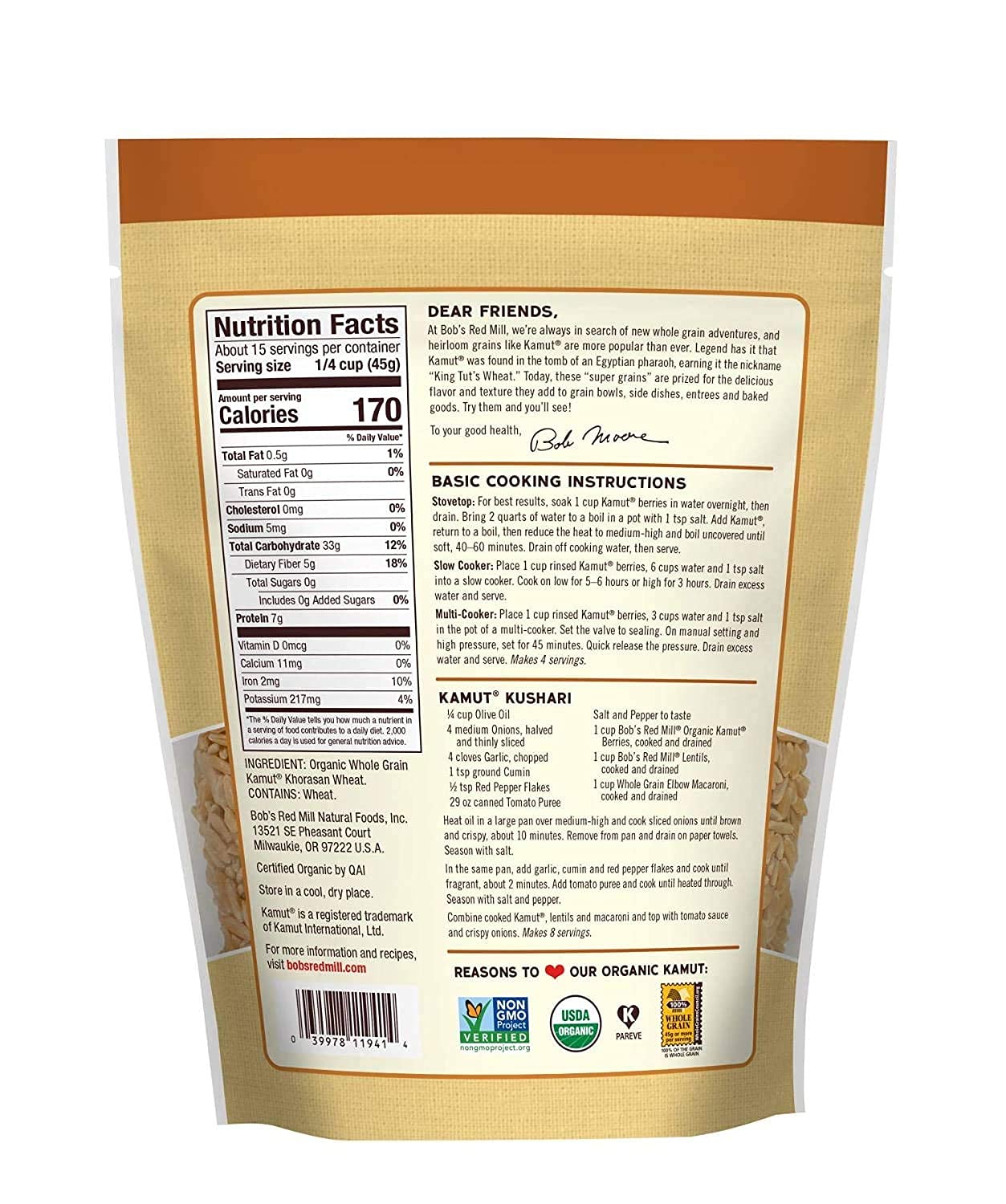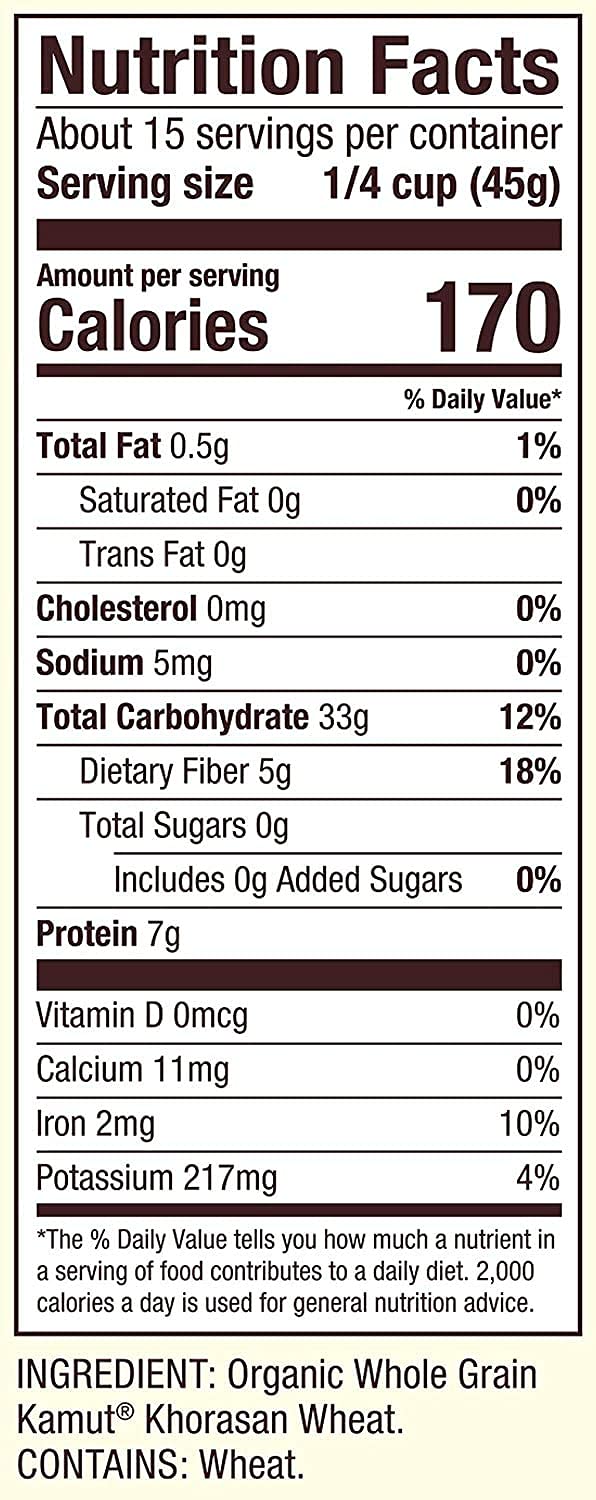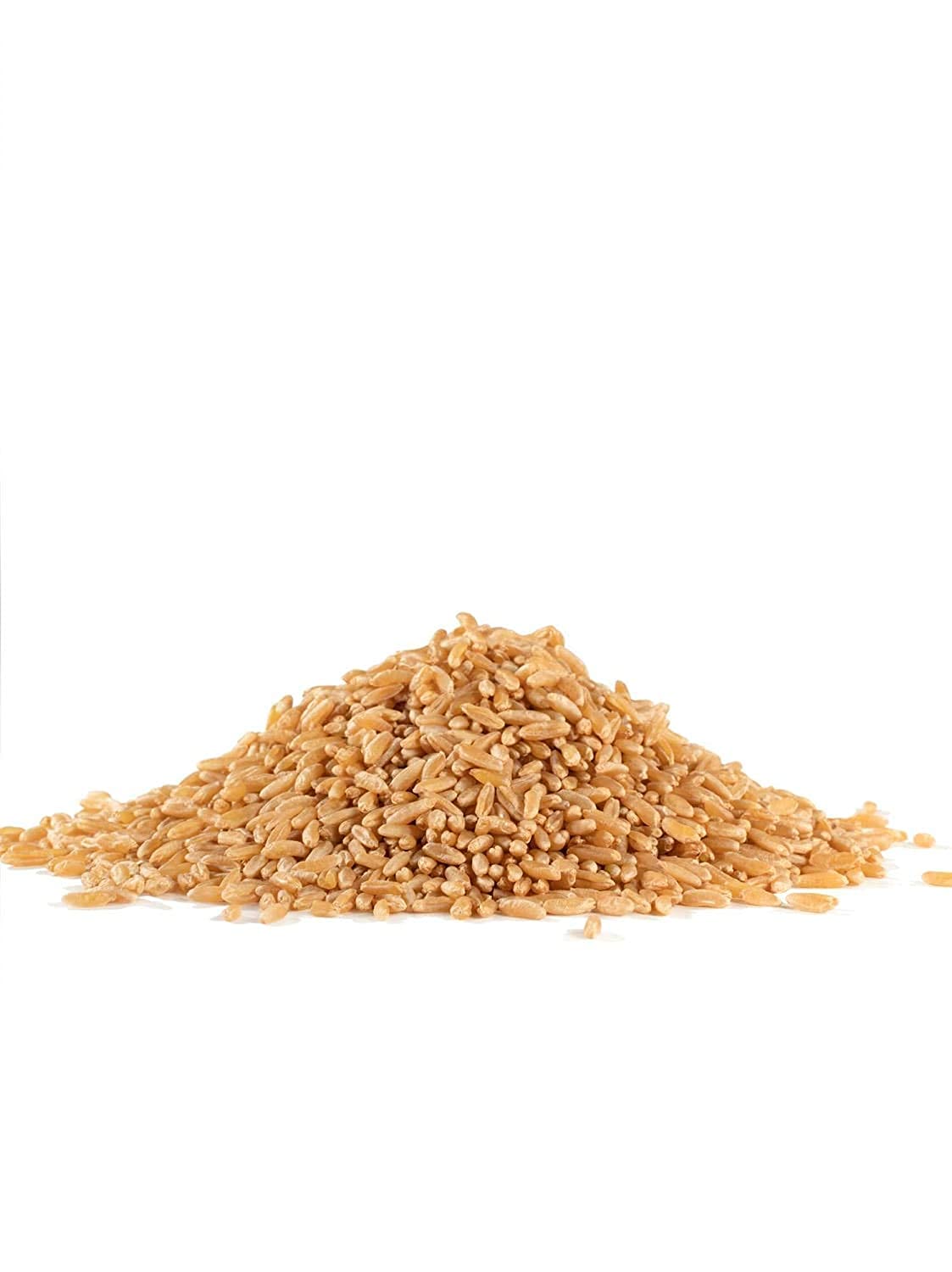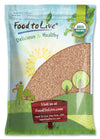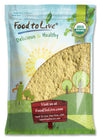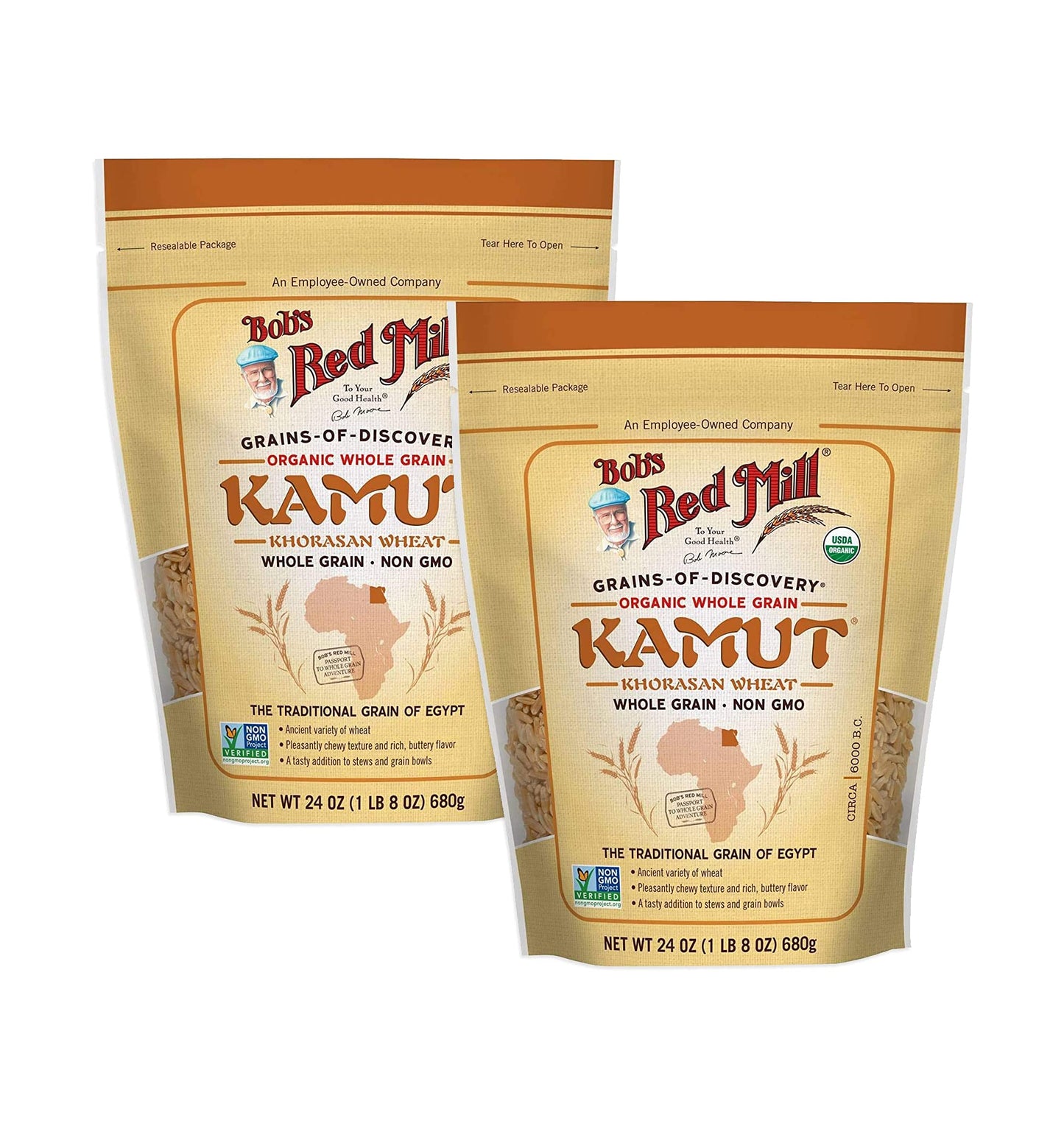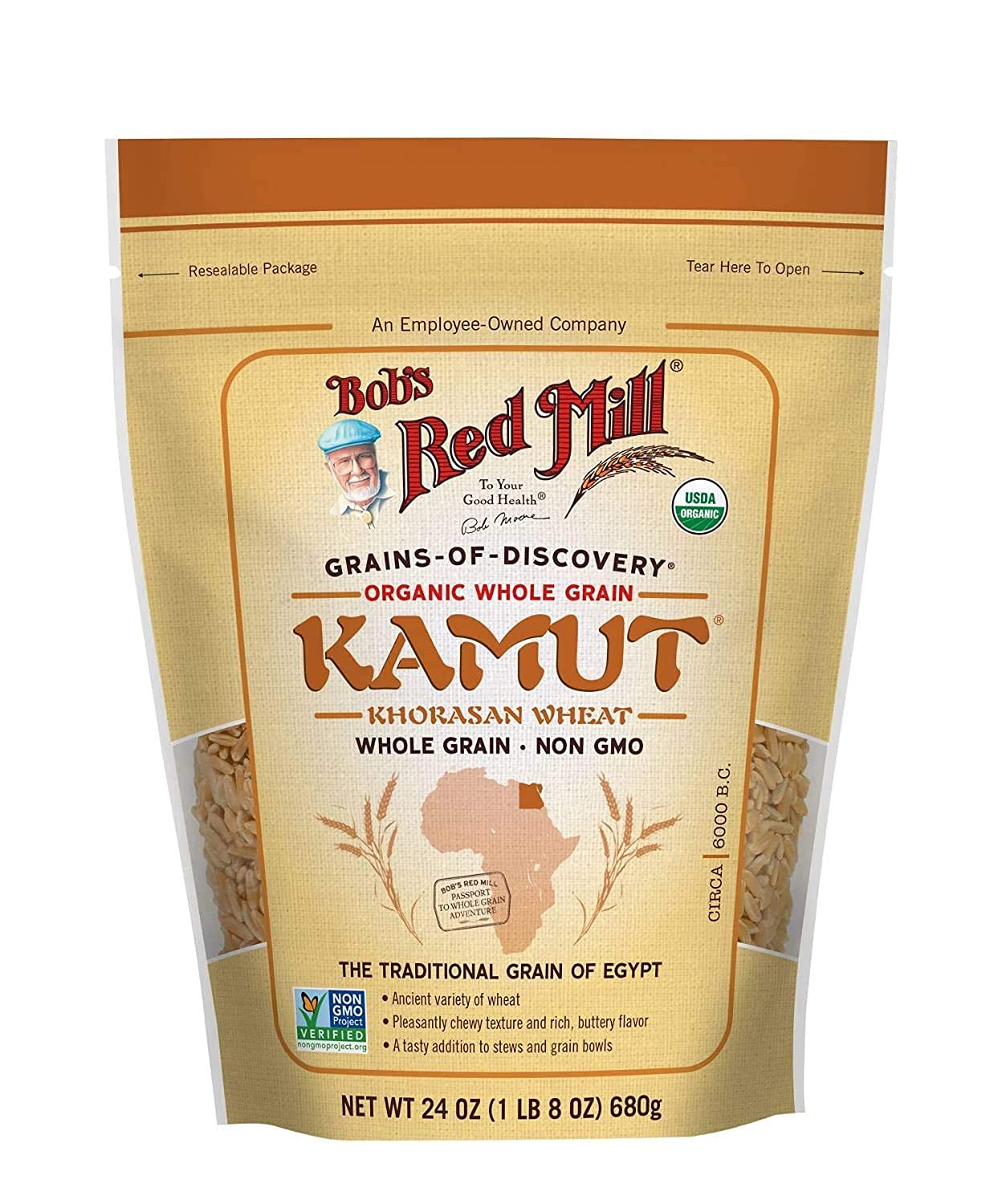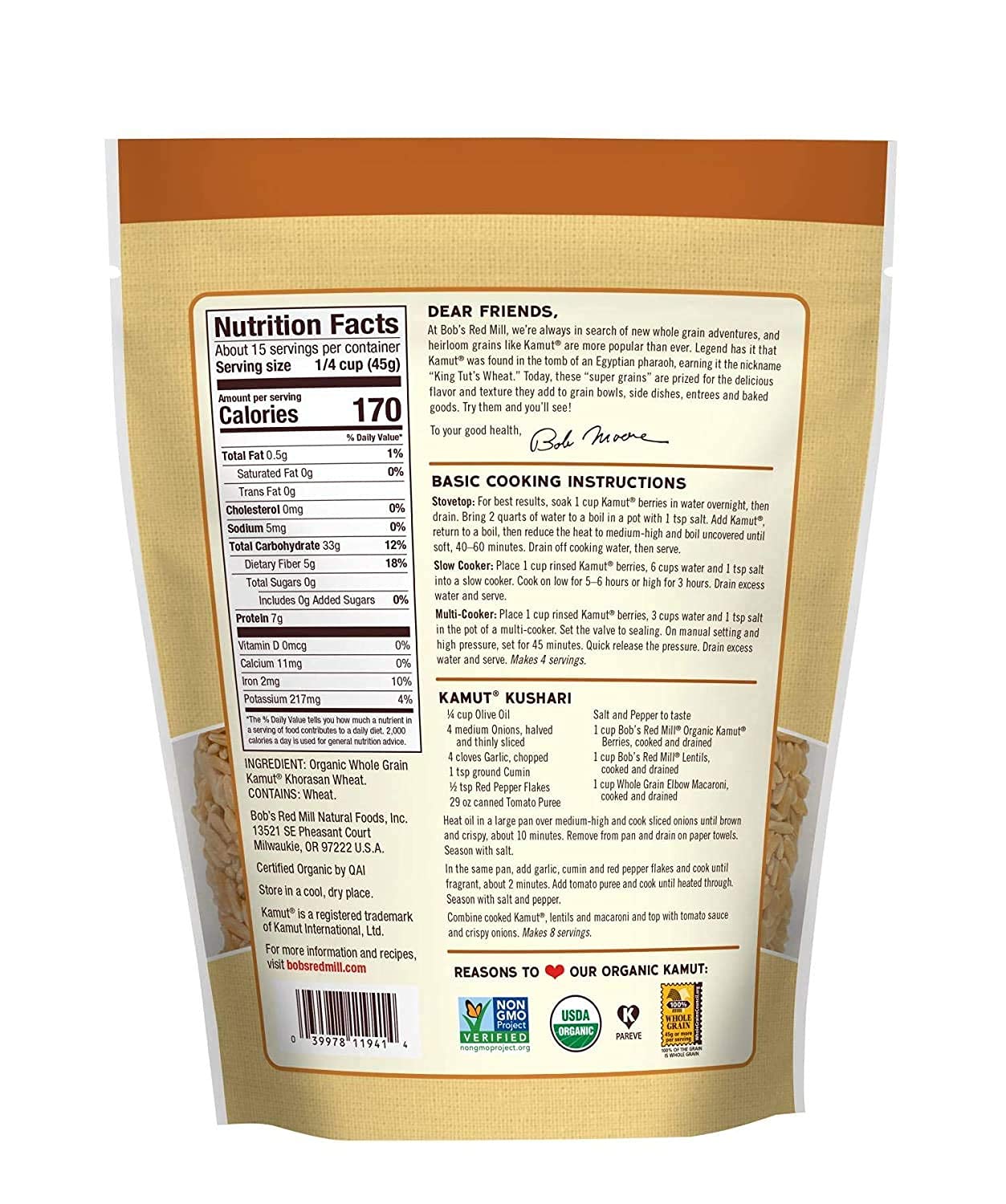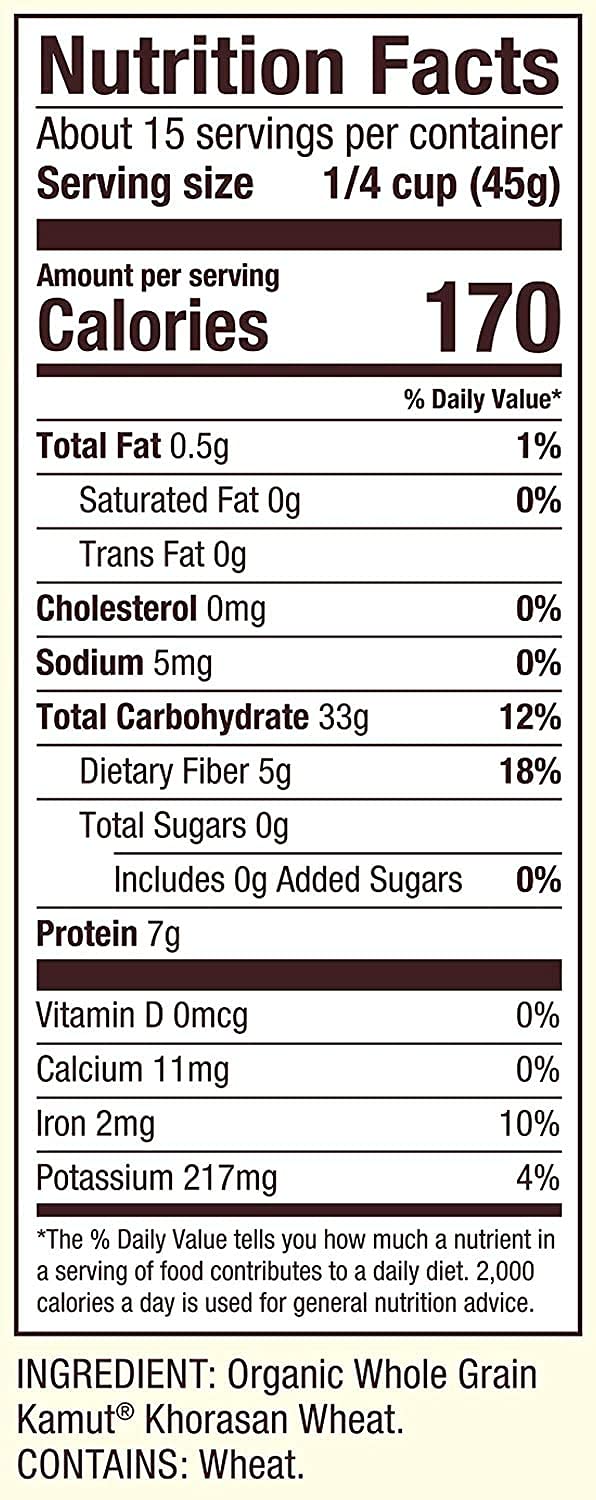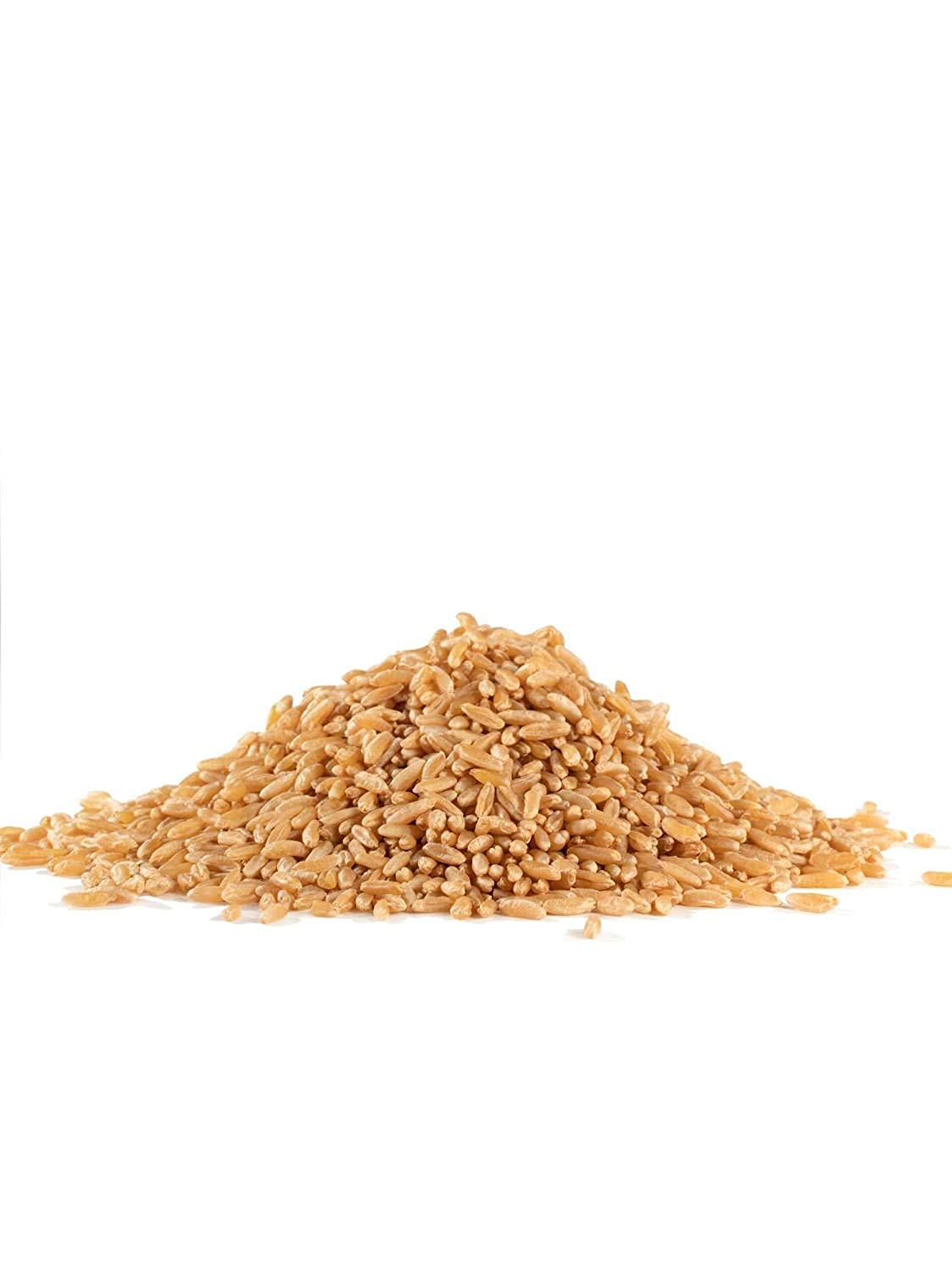You will not be allowed to compare more than 4 products at a time
View compareProduct Description
What We Eat Changes, And Even The Most Nutritious Foods Can Be Lost To Time. Thankfully, Bob'S Red Mill Organic Kamut Berries Isn'T One Of Them. Kamut Is A Traditional Egyptian Grain With A Somewhat Mysterious Origin. What Isn'T Mysterious Is Its Appeal. This Heirloom Grain Is Unique For Its Plump Kernels And Firm Texture. It'S A Delicious Alternative To Rice To Give Your Favorite Dishes A Pleasant Chew And Rich, Nutty Flavor. Even Better, It'S Packed With Protein, Zinc And Fiber. Explore The Mysteries Of Organic Kamut Berries And Discover Other Delicious Possibilities.
Frequently Asked Questions
- Q: What are Kamut Khorasan Berries and how do they differ from regular wheat? A: Kamut Khorasan Berries are an ancient grain believed to have originated in Egypt. Unlike regular wheat, Kamut has larger, plump kernels and a firmer texture, offering a rich, nutty flavor that enhances various dishes. It's also packed with protein, zinc, and fiber, making it a nutritious alternative.
- Q: How can I use Bob's Red Mill Organic Kamut Berries in my cooking? A: You can use Kamut Berries as a substitute for rice in your favorite dishes. They can be cooked in soups, salads, or as a side dish. To prepare, soak the berries overnight and then simmer them until tender for a delightful and hearty addition to your meals.
- Q: Are Kamut Berries gluten-free? A: No, Kamut Berries contain gluten, as they are a type of wheat. If you have a gluten sensitivity or celiac disease, it's best to avoid Kamut and opt for gluten-free grains.
- Q: What are the nutritional benefits of Kamut Khorasan Berries? A: Kamut Khorasan Berries are a great source of protein, magnesium, zinc, and dietary fiber. These nutrients help support overall health, including muscle function, immune health, and digestive health.
- Q: How should I store Bob's Red Mill Organic Kamut Berries? A: To maintain freshness, store Kamut Berries in a cool, dry place, ideally in an airtight container. They can also be kept in the refrigerator or freezer for extended shelf life.

